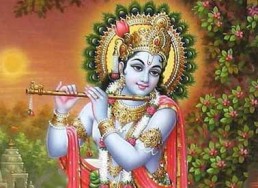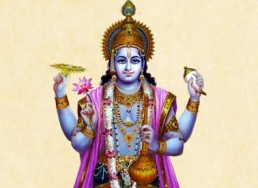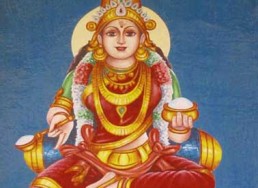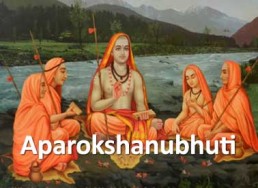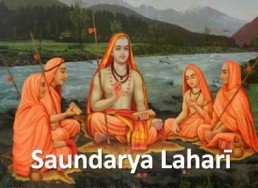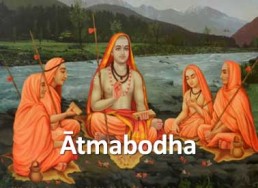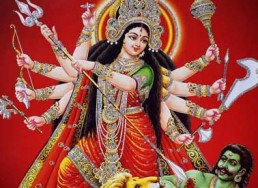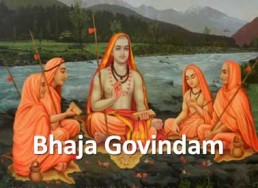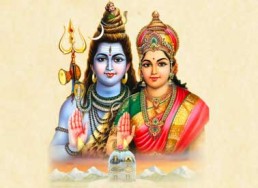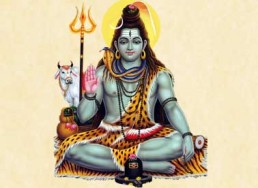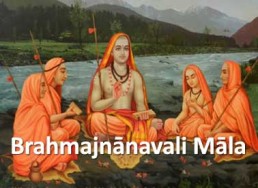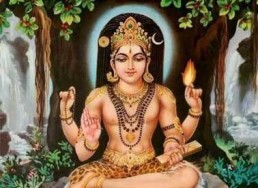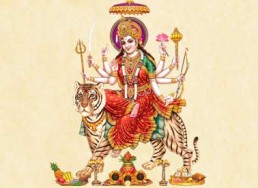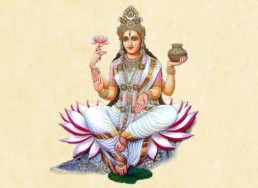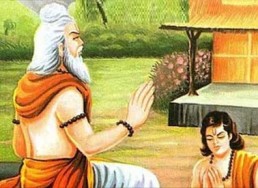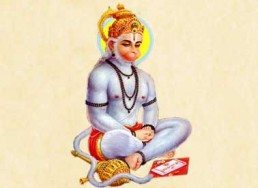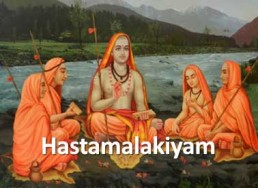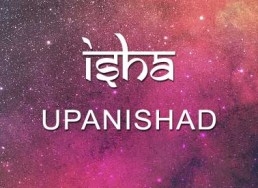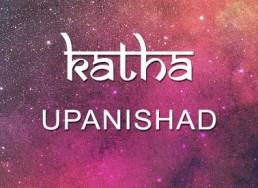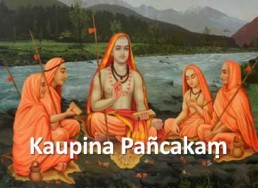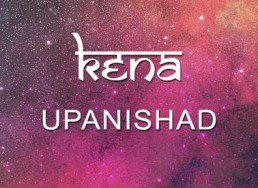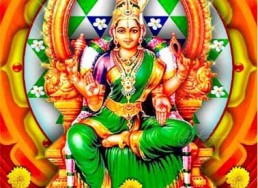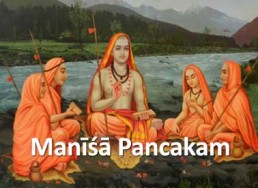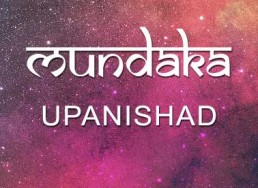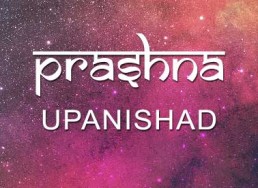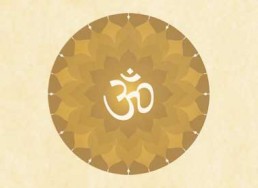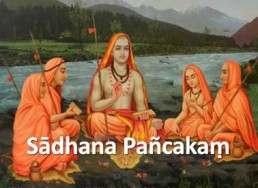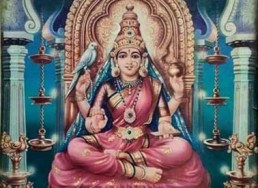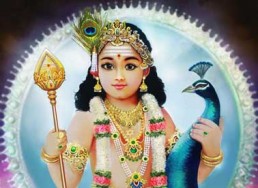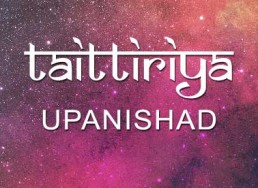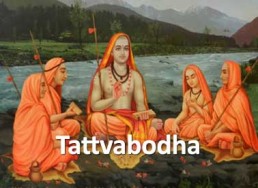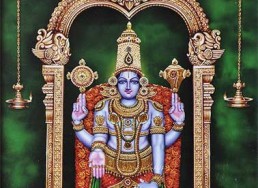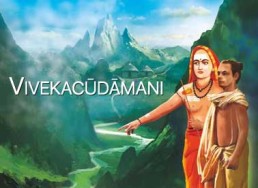Vishnu Shatpadi Stotram
Vishnu Shatpadi Stotram – Introduction
The Sri Vishnu Shatpadi (śrīviṣṇuṣaṭpadī) is a revered Sanskrit stotra (hymn) dedicated to Lord Vishnu, the preserver and protector in Hinduism. Composed by the illustrious philosopher and saint, Sri Shankaracharya, this hymn comprises six verses (ṣaṭpadī) that encapsulate deep spiritual insights and expressions of devotion.
In this stotra, devotees invoke Lord Vishnu to dispel ignorance, calm the mind, and cultivate compassion. Each verse serves as a heartfelt plea for divine assistance in overcoming the trials and tribulations of worldly existence. The hymn highlights the unity between the devotee and the divine, emphasizing that the relationship with Lord Vishnu transcends superficial distinctions.
Recited with reverence, the Sri Vishnu Shatpadi is often chanted during spiritual practices and rituals, fostering a sense of peace and surrender. Through its melodic verses, the stotra invites practitioners to deepen their connection with the divine and to seek refuge in the compassionate nature of Lord Vishnu.
अविनयमपनय विष्णो दमय मनः शमय विषयमृगतृष्णाम् ।
भूतदयां विस्तारय तारय संसारसागरतः ॥ १॥
avinayamapanaya viṣṇo damaya manaḥ śamaya viṣayamṛgatṛṣṇām .
bhūtadayāṃ vistāraya tāraya saṃsārasāgarataḥ .. 1..
avinayamapanaya viṣṇo damaya manaḥ śamaya viṣayamṛgatṛṣṇām
O Vishnu, remove arrogance, subdue my mind, and calm the thirst for worldly desires.
avinayamapanaya (avinayamapanaya) – Remove arrogance
viṣṇo (viṣṇo) – O Vishnu
damaya (damaya) – Subdue
manaḥ (manaḥ) – My mind
śamaya (śamaya) – Calm
viṣayamṛgatṛṣṇām (viṣayamṛgatṛṣṇām) – The thirst for worldly desires
bhūtadayāṃ vistāraya tāraya saṃsārasāgarataḥ .. 1..
Expand compassion towards all beings, and guide me across the ocean of worldly existence.
bhūtadayāṃ (bhūtadayāṁ) – Compassion towards all beings
vistāraya (vistāraya) – Expand
tāraya (tāraya) – Guide
saṃsārasāgarataḥ (saṃsārasāgarataḥ) – Across the ocean of worldly existence
श्रीपतिपदारविन्दे भवभयखेदच्छिदे वन्दे ॥ २॥
śrīpatipadāravinde bhavabhayakhedacchide vande .. 2..
divyadhunīmakarande parimalaparibhogasaccidānande
In the divine nectar of bliss, with the fragrance of true existence, I bow to the lotus feet of the Lord, which cut through the sorrows of the world.
divyadhunīmakarande (divyadhunīmakarande) – In the divine nectar
parimalaparibhogasaccidānande (parimalaparibhogasaccidānande) – With the fragrance of true existence and bliss
śrīpatipadāravinde bhavabhayakhedacchide vande .. 2..
I bow to the lotus feet of the Lord, which dispel the sorrows of existence.
śrīpatipadāravinde (śrīpatipadāravinde) – Lotus feet of the Lord
bhavabhayakhedacchide (bhavabhayakhedacchide) – Which dispel the sorrows of existence
vande (vande) – I bow
सामुद्रो हि तरङ्गः क्वचन समुद्रो न तारङ्गः ॥ ३॥
sāmudro hi taraṅgaḥ kvacana samudro na tāraṅgaḥ .. 3..
satyapi bhedāpagame nātha tavāhaṃ na māmakīnastvam
O Lord, even in the dissolution of differences, I am yours, and you are mine;
satyapi (satyapi) – Even in truth
bhedāpagame (bhedāpagame) – In the dissolution of differences
nātha (nātha) – O Lord
tavāhaṃ (tavāhaṃ) – I am yours
na māmakīnastvam (na māmakīnastvam) – You are not mine
sāmudro hi taraṅgaḥ kvacana samudro na tāraṅgaḥ .. 3..
Like the ocean and its waves, one cannot exist without the other.
sāmudro (sāmudro) – The ocean
hi (hi) – Indeed
taraṅgaḥ (taraṅgaḥ) – Is the wave
kvacana (kvacana) – Wherever
samudro (samudro) – The ocean is
na tāraṅgaḥ (na tāraṅgaḥ) – There are no waves
दृष्टे भवति प्रभवति न भवति किं भवतिरस्कारः ॥ ४॥
dṛṣṭe bhavati prabhavati na bhavati kiṃ bhavatiraskāraḥ .. 4..
uddhṛtanaga nagabhidanuja danujakulāmitra mitraśaśidṛṣṭe
O Lord, who uplifts the mountains and protects the kin of demons, those who see you are blessed.
uddhṛtanaga (uddhṛtanaga) – Uplifter of the mountains
nagabhidanuja (nagabhidanuja) – Protector of the kin of demons
danujakulāmitra (danujakulāmitra) – Friend of the kin of demons
mitraśaśidṛṣṭe (mitraśaśidṛṣṭe) – O Lord, who blesses those who see you
dṛṣṭe bhavati prabhavati na bhavati kiṃ bhavatiraskāraḥ .. 4..
Whether you manifest or not, what remains unfulfilled in your presence?
dṛṣṭe (dṛṣṭe) – When seen
bhavati (bhavati) – It happens
prabhavati (prabhavati) – It manifests
na bhavati (na bhavati) – It does not happen
kiṃ (kiṁ) – What
bhavatiraskāraḥ (bhavatiraskāraḥ) – Remains unfulfilled
परमेश्वर परिपाल्यो भवता भवतापभीतोऽहम् ॥ ५॥
parameśvara paripālyo bhavatā bhavatāpabhīto’ham .. 5..
matsyādibhiravatārairavatāravatā’vatā sadā vasudhām
O Supreme Lord, who takes various forms, you are always the protector of the earth through your incarnations.
matsyādibhiravatārairavatāravatā (matsyādibhiravatārairavatāravatā) – O Lord, who takes various incarnations like the fish
sadā vasudhām (sadā vasudhām) – Always the protector of the earth
parameśvara paripālyo bhavatā bhavatāpabhīto’ham .. 5..
I am afraid of the fears of existence; please protect me.
parameśvara (parameśvara) – O Supreme Lord
paripālyo (paripālyo) – Protector
bhavatā (bhavatā) – By you
bhavatāpabhīto’ham (bhavatāpabhīto’ham) – I am afraid of the fears of existence
भवजलधिमथनमन्दर परमं दरमपनय त्वं मे ॥ ६॥
bhavajaladhimathanamandara paramaṃ daramapanaya tvaṃ me .. 6..
dāmodara guṇamandira sundaravadanāravinda govinda
O Govinda, the embodiment of all virtues, whose beautiful lotus-like face shines with grace.
dāmodara (dāmodara) – O Lord who is tied with love
guṇamandira (guṇamandira) – The abode of virtues
sundaravadanāravinda (sundaravadanāravinda) – Beautiful lotus-like face
govinda (govinda) – O Govinda
bhavajaladhimathanamandara paramaṃ daramapanaya tvaṃ me .. 6..
Please help me overcome the ocean of existence.
bhavajaladhimathanamandara (bhavajaladhimathanamandara) – The churning of the ocean of existence
paramaṃ (paramaṁ) – The ultimate
daramapanaya (daramapanaya) – Please remove my fears
tvaṃ me (tvaṁ me) – From you
इति षट्पदी मदीये वदनसरोजे सदा वसतु ॥ ७॥
iti ṣaṭpadī madīye vadanasaroje sadā vasatu .. 7..
nārāyaṇa karuṇāmaya śaraṇaṃ karavāṇi tāvakau caraṇau
O Narayana, the embodiment of compassion, I take refuge at your lotus feet.
nārāyaṇa (nārāyaṇa) – O Narayana
karuṇāmaya (karuṇāmaya) – Embodiment of compassion
śaraṇaṃ (śaraṇaṁ) – I take refuge
karavāṇi (karavāṇi) – I wish to do
tāvakau caraṇau (tāvakau caraṇau) – At your lotus feet
iti ṣaṭpadī madīye vadanasaroje sadā vasatu .. 7..
May my heart always dwell at your lotus-like face.
iti (iti) – Thus
ṣaṭpadī (ṣaṭpadī) – The six verses
madīye (madīye) – In my heart
vadanasaroje (vadanasaroje) – At your lotus-like face
sadā (sadā) – Always
vasatu (vasatu) – May dwell
iti śrīmad śaṅkarācāryaviracitaṃ viṣṇuṣaṭpadīstotraṃ sampūrṇam
Thus ends the Vishnuṣaṭpadī composed by Sri Shankaracharya.
iti (iti) – Thus
śrīmad (śrīmad) – Respected
śaṅkarācārya (śaṅkarācārya) – Sri Shankaracharya
viracitaṃ (viracitaṁ) – Composed
viṣṇuṣaṭpadī (viṣṇuṣaṭpadī) – Vishnuṣaṭpadī
sampūrṇam (sampūrṇam) – Complete
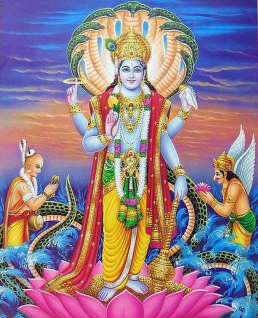
Description
Vishnu Shatpadi Stotram – Introduction
The Sri Vishnu Shatpadi (śrīviṣṇuṣaṭpadī) is a revered Sanskrit stotra (hymn) dedicated to Lord Vishnu, the preserver and protector in Hinduism. Composed by the illustrious philosopher and saint, Sri Shankaracharya, this hymn comprises six verses (ṣaṭpadī) that encapsulate deep spiritual insights and expressions of devotion.
In this stotra, devotees invoke Lord Vishnu to dispel ignorance, calm the mind, and cultivate compassion. Each verse serves as a heartfelt plea for divine assistance in overcoming the trials and tribulations of worldly existence. The hymn highlights the unity between the devotee and the divine, emphasizing that the relationship with Lord Vishnu transcends superficial distinctions.
Recited with reverence, the Sri Vishnu Shatpadi is often chanted during spiritual practices and rituals, fostering a sense of peace and surrender. Through its melodic verses, the stotra invites practitioners to deepen their connection with the divine and to seek refuge in the compassionate nature of Lord Vishnu.
Other Vishnu Shlokams
Achyutashtakam
Achyutashtakam, composed by Sri Adi Shankaracharya, is in praise of Lord Krishna. It is a simple yet wonderful hymn of eight stanzas comprising the names of lord Vishnu with main emphasis on his incar
Acyutam Kesavam
Everybody should meditate regularly upon Achyuta, Kesava, Vishnu, Hari, Satya, Janardhana and Narayana, the swan, which signifies the quintessence of things.
Akasat Patitam Toyam
As all rains falling from the sky reach the ocean; so also the prayers to all gods ultimately get to the Lord Keshava.
Annapurna Stotram
Annapurna is the goddess of food and nourishment. She is a form of Parvati, the inseparable shakti of Lord Shiva. Anna is translated as "food" and "grains" and purna means "full" or "complete". Annapu
Aparokshānubhuti
Shlokams,Prakarana Grantha,Sankara
Aparokshanubhuti, or Direct Experience of the Absolute is an introductory work by Adi Shankaracharya that expounds Advaita Vedanta philosophy. The word means Self-Realization
Apavitra Pavitro
Om, if one is Apavitra (Impure) or Pavitra (Pure), or even in all other conditions, he who remembers Pundarikaksha (another name of Sri Vishnu, literally meaning with lotus-like eyes), he becomes pure
Ashtavakra Gita Home
Shlokams,Prakarana Grantha,Sankara
The Ashtavakra Gita is an ancient Sanskrit scripture that presents a powerful conversation between the sage Ashtavakra and King Janaka on the nature of the Self, liberation, and ultimate truth. Unlike many other spiritual texts, it is remarkable for…
Ātmabōdha
Shlokams,Prakarana Grantha,Sankara
Atmabodha, meaning Self-knowledge or Self-awareness, is an exceptionally lucid and readable work of Shankaracharya. Consisting of sixty-eight verses or shlokas, it is in a sense a simple summary of his entire Vedantic structure of thought, intended,…
Atmabodha All Verses
Shlokams,Atmabodha Verse,Sankara
Atmabodha - Full text with meaning, audio and translation from Sanskrit to English, Telugu, Kannada, Tamil and more
Ayigiri Nandini
The Mahishasura Mardini Stotram also known popularly as Aigiri Nandini, holds immense significance during Navratri. The word Mahisha means buffalo and Asura means Rakshasa or Demon. Composed by the great sage Adi Shankaracharya around 810 AD, this…
Ayigiri Nandini – Chanting – English
The Mahishasura Mardini Stotram also known popularly as Aigiri Nandini, holds immense significance during Navratri. The word Mahisha means buffalo and Asura means Rakshasa or Demon. Composed by the great sage Adi Shankaracharya around 810 AD, this…
Ayigiri Nandini – Chanting – Sanskrit
The Mahishasura Mardini Stotram also known popularly as Aigiri Nandini, holds immense significance during Navratri. The word Mahisha means buffalo and Asura means Rakshasa or Demon. Composed by the great sage Adi Shankaracharya around 810 AD, this…
Bhaja Govindam
Shlokams,Vishnu,Sankara,Govinda,Krishna,Prakarana Grantha
Bhaja Govindam is one of the most popular hymns penned by Adi Shankaracharya. He has packed into the Bhaja Govindam song the substance of all Vedanta, and set the oneness of Jnana and Bhakti to melodious music.
Bhavani Ashtakam
Composed by Sri Adi Shankaracharya. Bhavani Ashtakam is a popular hymn on Goddess Bhavani, who is known for her protection and merciful nature. The Lyrics of this hymn have an in-depth meaning that wh
Bilvashtakam
Composed by Sri Adi Shankaracharya, the famous Bilvashtakam extols the virtues of the Bilva leaf (also spelt Vilva, Bilwa) and Lord Shiva’s love for it. The following com
Bilvashtakam 14 Verses
Note: For the original version of Bilvashtakam please click here. Composed by Sri Adi Shankaracharya,
Brahmajnānavali Māla
Shlokams,Prakarana Grantha,Sankara
In this Prakarana Grantha (topical text or treatise) attributed to Sri Sankara the characteristics of the person who has realized that he is Brahman are described. The aspirant for liberation is advised to meditate on these in order to attain that…
Dakshinamurthy Stotram
Shlokams,Sankara,Shiva,Dakshinamurthy
The Dakshinamurti Stotra is a Sanskrit religious hymn to Shiva by Sri Adi Shankaracharya. It explains the metaphysics of the universe in the frame of the tradition of Advaita V
Dasa Shloki
Shlokams,Prakarana Grantha,Sankara
This composition in ten verses - dasha shloka - is similar to the Nirvana Shatakam, and like it, a summation, in typically Shankara's way, of the unyielding non-dual vision of Advaita. Here too, Shankara's attempt is to deny everything else only to…
Devi Aparadha Kshamapana Stotram
Composed by Sri Adi Shankaracharya. Aparadha Kshamapana stotram is usually recited after a recital or after the completion of Puja. Its like asking for forgiveness from Goddess for various mistakes th
Dhanvantari Mantra
The Dhanvantari Mantra calls upon the divine healer, Lord Dhanvantari, the god of Ayurveda, for health and protection from ailments.
Ganesha Pancharathnam
The composer, Guru Sri Adi Shankaracharya had praised the God Ganesha by presenting these five stanzas as five jewels, hence the name Maha Ganesha Pancharatnam.
Ganesha Stavah
Ganesha Stavah or Ganapati Stavah is a set of 13 verses that describe the glory of Lord Ganesha. Gaṇapati stavaḥ is said to be from Ganesh Purana - upāsanā khaṇḍa adhyāya 13.
Ganga Ashtakam
Gangashtakam is an octet on river Ganga composed by Shri Adi Shankaracharya.
Gangā stotram
Sri Adi Shankaracharya has written a song ”Devi Suresvari Bhagavati Gange” and the Official Name for this song is ”Sri Sri Ganga Stotram”. In this song Sree Shankaracharya describes the glories of Sri
Guru Ashtakam
The Guru Ashtakam is a Sanskrit hymn composed by Adi Shankaracharya, the 8th-century Indian philosopher and saint who consolidated the doctrine of Advaita Vedanta. In the Vedan
Guru Paduka Stotram
Guru Paduka Stotram is a very powerful chant that glorifies the "Padukas (Sandals) of the Guru," which are symbolically represented as "the boat to help cross the endless ocean
Hanuman Pancharatnam
Garland of five gems on Shri Hanuman composed by Shri Adi Shankaracarya.
Hastāmalakiyam
Shlokams,Prakarana Grantha,Sankara
Composed by Hastāmalaka Ācārya, a direct disciple of Adi Sankaracharya, the Hastāmalaka Stotraṁ or Hastāmalakiyam is a short Vedāntic text about the higher nature of the Self.
Ishavasya All Verses
Introduction to Isavasya Upanishad The Īśāvāsyopaniṣad—so called from its initial words—forms the concluding chapter of the Saṃhitā of the Suklayajurveda The name of
Ishavasya Upanishad
The Isha Upanishad is embedded as the final chapter of the Shukla Yajurveda and is one of the shortest Upanishads, with 18 verses. It is the very first Upanishad in the Muktika canon of 108 Upanishads.
Ishvaro Guru Atmeti
Shlokams,Shiva,Dakshinamurthy,Guru,Sankara
Salutations to Lord Dakshinamurti, who is all-pervasive like space but who appears (as though) divided as Lord, Guru, and the Self.
Jagannath Ashtakam
Shri Jagannath Ashtakam was composed by Adi Sankracharya in praise of Lord Jagannath on his visit to Puri. The merit of reciting the sacred Jagannath ashtakam carefully is such that, one becomes sinle
Kalabhairava Ashtakam
Composed by Sri Adi Shankaracharya. The hymn illustrates the personality of Kala Bhairava of Kashi, the God of Death(kala). Those who study these 8 verses on Kala Bhairava, which are enticing and whic
Kalika Ashtakam
The Kalika Ashtakam is a Sanskrit hymn of eight verses dedicated to Goddess Kali, the fierce and protective form of the Divine Mother. This devotional text focuses on Ka
Kamakshi Stotram
Composed by Sri Adi Shankaracharya. Goddess Kamakshi is a form of Tripura Sundari or Parvati or the universal mother goddess. The word is derived from the heritage “Ka” meaning Goddess Saraswati (Godd
Kanakadhara Stotram
Kanakadhara Stotram is a hymn (Stotra) composed in Sanskrit by Sri Adi Sankaracharya. Kanakadhara means “stream” (dhara) of “gold” (kanaka). The 21 stanzas of kanakadhārā stotram then became famous and are read by all devout Hindus for……
Kasi Viswanathashtakam
Composed by Sri Adi Sankaracharya in praise of Lord Shiva. That man who reads this octet with its meaning, which sings the praise of Shiva who is the lord of Varanasi, would get knowledge, wealth, gre
Katha Upanishad
The Katha Upanishad is embedded in the last 8 sections of the Krishna Yajurveda. It has two chapters divided into three Vallis each. It is a Mukhya upanishad and listed as #3 in the Muktika canon of 108 Upanishads.
Kathopanishad All Verses
The Katha Upanishad is a collection of philosophical poems representing a conversation between the sage Naciketas and Yama (god of death). They discuss the nature of Atman, Brahman and Moksha (liberation). The book is made up of six sections…
Kaupina Panchakam
Shlokams,Prakarana Grantha,Sankara
Kaupina Panchakam - This is a very short poem composed by Sri Adi Sankaracharya, with five stanzas that glorify the life of a Sannyasi. The Kaupina is made up of a rectangular strip of cotton cloth used to cover the genitals with the help of the…
Kayena Vaca
Whatever I do either by body, speech, mind or sensory organs, either with my personal knowledge or natural trait, I surrender and submit all to that to supreme divine Narayana.
Kena Upanishad
The Kena Upanishad is embedded inside the last section of the Talavakara Brahmanam of the Samaveda. It is a Mukhya upanishad and listed as #2 in the Muktika canon of 108 Upanishads.
Kenopanishad-All-Verses
The Kena Upanishad or Kenopanishad (Kenopaniṣat) (also known as the Talavakara Upanishad) elucidates the concept of nirguna (qualityless) Brah
Lakshmi Narasimha Karavalambam
Narasimha is a fierce avatar of the Hindu god Vishnu, one who incarnates in the form of part lion and part man to destroy evil and end religious persecution and calamity on Earth, thereby restoring Dh
Lalitha Panchakam
Composed by Sri Adi Shankaracharya in praise of mother Lalitha. The phalastuti of the stotram says the divine mother will give good knowledge, wealth, fame, happiness, fortune, and prosperity.
Lalitha Sahasranamam
Lalitha Sahasranamam is a sacred Hindu text from the Brahmanda Purana which lists the thousand names of the Hindu mother goddess Lalita Devi, a manifestation of the Divine Mother (Shakti), and is therefore used in the worship of Durga, Parvati,…
Mahishasura Mardini Storam
Mahishasura Mardini Stotram - This is a prayer to the Goddess who killed Mahishasura. “The place where Sri Mahishasura Mardini Stotram is sung every day, I will always be present and never leave.” - The Devi’s proclamation in the 12th chapter of the…
Mandukya Karika
The Mandukya Karika represents the first systematic philosophical exposition of Advaita Vedanta, transforming the concise twelve-verse Mandukya Upanishad into a comprehensive 215-verse treatise on non-dual philosophy.
Mandukya Upanishad All Verses
Mandukya Upanishad - A detailed Summary The Mandukya Upanishad is the shortest yet one of the most profound Upanishads, consisting of just 12 verses. It explores the n
Manishā Panchakam
Shlokams,Prakarana Grantha,Sankara
Adi Sankara’s ‘Manisha Panchakam’ refers to the conclusive wisdom or determinate knowledge asserted in five verses. Manisha means conclusive wisdom or determinate knowledge and Panchakam refers to the five verses.
Mantra Pushpam
The Mantra Pushpam (literally translating to "Flower of Mantras") is a collection of sacred verses from the 10th chapter of Taittiriya Aranyaka of Krishna Yajur Veda. Each verse begins with an exploration of the relationship between the flower of…
Mauna Vyakhya
Shlokams,Sankara,Shiva,Dakshinamurthy
I salute Sri Dakshinamurti, who is not subject to time, who makes known the truth of Brahman through the implied meaning of words, who is surrounded by disciples who are themselves Rishis and committe
Meenakshi Pancharatnam
Meenakshi Pancharatnam (The five jewels of Meenakshi) is a popular stotram composed by Sri Adi Shankaracharya as a ritual incantation on goddess Meenakshi. This stotram explains the divine qualities,
Megha Syamam
Salutations to Sri Vishnu who is beautiful like the dark clouds, and who is wearing yellow garments of silk; Who has the mark of Srivatsa on his chest; and whose body is shining with the radiance of t
Mundaka Upanishad
The Mundaka Upanishad is embedded is embedded in the Atharva Veda. It is a Mukhya upanishad and listed as #5 in the Muktika canon of 108 Upanishads.
Namami Narayana Pada
I salute the lotus-feet of Narayana, always, propitiate Narayana, speak of the pure name of Narayana and bear in mind the immutable factuality of Narayana.
Narayana Kavacham
Shlokams,Vishnu,Govinda,Krishna
The Narayana Kavacham occurs in chapter eight of the sixth skanda of Bhagavada Purana. It is an Armour (Kavach) to protect ourselves from all our enemies (including negativitie
Narayanam Hrishikesam
I salute Narayana, Hrishikesa, Govinda, Garudadhwaja, Vaasudeva, Hari, Krishna and Kesava.
Narayaneti Vagvalvi
The four letters 'Na', 'Ra,'Ya', 'Na' are the four shoots on the creeper of speech and are undoubtedly indicative of the four Purusharthas- Dharma, Artha, Kaama and Moksha.
Narmada Ashtakam
Composed by Sri Adi Shankaracharya in praise of river Narmada.
Nidhaye Sarvavidyanam
Shlokams,Sankara,Shiva,Dakshinamurthy
Salutations to Sri Dakshinamurti, the reservoir of knowledge (the abode of all learning), the healer of all those who suffer from the disease of samsāra, and the teacher of the whole world.
Nirvana Shatakam
Nirvana Shatkam (Atma Shatakam) of Adi Sankara Commentary and Notes Translated by S. N. Sastri Introduction: Sri Sankara Bhagavatpada has blessed poster
Om Namah Pranavarthaya
Shlokams,Sankara,Shiva,Dakshinamurthy
Om. Salutation to the one who is the meaning of praņava, who is in the form of pure knowledge, who is taintless and who is free from any change. To that Sri Dakshinamurti, (my) salutations.
Om Namo Bhagavate Dakshinamurthaye
Shlokams,Sankara,Shiva,Dakshinamurthy
Om. Salutations to Bhagavan Dakshinamurti. (Oh Lord) Bless me with memory, the capacity to think properly, and clarity, wisdom.
Pandurang Ashtakam
Shri Pandurang ashtakam (Pandurangashtakam) Stotra is a very beautiful creation of Shri Adi Shankaracharya. Lord Vithal, or Panduranga Vittala, is an incarnation of Lord Vishnu and is worshipped in t
Prashna Upanishad
The Prashna Upanishad is embedded is embedded in the Atharva Veda. It is a Mukhya upanishad and listed as #5 in the Muktika canon of 108 Upanishads.
Prashnopanishad-All-Verses
The Prashnopanishad (Prashna Upanishad) is a key philosophical text within the Indian spiritual tradition, part of the larger body of literature known as the Upanishads.
Prātah Smaranam
Pratah Smaranam is a prayer composed by Sri Adi Shankaracharya consisting of three stanzas in which the mind (manas) speech (vak), and body (kaya) of the individual are
Ranganatha Ashtakam
Ranganatha Ashtakam was written by Adi Sankara Bhagavatpada when he stood before Sri Ranganatha swamy in Srirangam, during his travels. This Ashtakam reveals that Adi Sankara was overwhelmed by Lord R
Sādhana Panchakam
Shlokams,Prakarana Grantha,Sankara
Sadhana Panchakam - Adi Sankara in these five simple looking verses lovingly lists the ways and means which can readily be followed by all students of Vedanta, seeking direct experience of the divine state beyond the mind, the spring of…
Sankaram Sankaracharyam
Salutations again and again to Lord Shiva in the form of Sri Sankaracharya and Lord Vishnu in the form of Veda Vyasa, who were the authors of sutra and bhasya.
Sashanka Chakram Sakirita
I salute, prostrate with my head, to that four-armed Lord Vishnu, who is ornamented with the shankh (conch) and chakra (the divine wheel), the crown and ear-drops, yellow silk robes, lotus-eyes, decor
Saundarya Lahari
Shlokams,Prakarana Grantha,Sankara
The Saundarya Lahari, a devotional poem of one hundred hymns, is ascribed to the great teacher Shankaracharya. The poem is divided into two parts; the first part, comprised of verses 1 through 41, is called the Anandalahari, or Wave of Bliss, and…
Shantakaram
We bow to the only lord of all worlds, Vishnu who is of peaceful appearance, reclining on the serpent, with a lotus from the navel, lord of gods, the basis of the universe, vast like the sky, coloured
Sharada Bhujangam
Composed by Sri Adi Shankaracharya on devi Sharada. Sringeri is the first math (monastery) built by Sri Adi Shankaracharya. It has the famous temple of Devi Sharada inside it. The math is situated on
Shiva Aparadha Kshamapana Stotram
The Śiva Aparādha Kṣamāpaṇa Stotram, or "Hymn of Forgiveness for Offenses to Lord Śiva," is a heartfelt composition by the revered philosopher and saint Śrī Ādi Śaṅkarācārya. T
Shiva Ashtakam
Composed by Adi Shankaracharya. This ashtakam is a descriptive salutation of the different attributes of Shiva. The great yogi who is referred to as Ardhanarishwara (the one who has included the femin
Shiva Manasa Puja
Sri Adi Shankaracharya composed this mantra for lord Shiva. Using this stotra, we can perform mental worship of Lord Shiva.
Shiva Pratah Smaranam
This is a short and beautiful 'Three Shloka Prayer' that makes the start of the day full of energy and happiness. Composed by Sri Adi Shankaracharya.
Somanatha Vaidyanatha
One who remembers Somanātha (Lord Śiva), Vaidyanātha (the healer Śiva), Dhanvantari (the divine physician), and the twin Ashvinis (divine doctors of the gods) every morning will not be touched by dise
Soundarya Lahari All Verses
Soundarya Lahari, meaning "Waves of Beauty," is a revered Sanskrit literary work attributed to Adi Shankaracharya, the great philosopher and theologian who consolidated the doctrine of Advaita Vedanta in the 8th century. This composition is not just…
Sruti Smrti
I bow at the feet of the Lord in the form Sri Sankaracharya, who is the blessing for the humanity, who is the shrine for the sruti, the smrti and the purana, and, who is the abode of compassion.
Subramanya Bhujangam
Sri Subramanya bhujangam is a stotra sung under inspiration by Sri Adi Shankaracharya at Thiruchendur ( presently located in Tamil Nadu, India). When he meditated upon SrI Subrahmanya, he became aware
Swayam Vyakta Sthalam
First, called "Ranga", the great temple (of Srirangam), made known by the (great lord) Ranga, (Then) Srimushanam and Venkatadri, Salagrama and Naimisha, Toyadri (Thiruneermalai), Pushkara and indeed N
Taittiriya Upanishad
The Taittiriya Upanishad is one of the primary Upanishads, as part of the Yajur Veda. It says that the highest goal is to know the Brahman, for that is Truth. It is divided into three sections, 1) the Siksha Valli, 2) the Brahmananda Valli and 3)…
Tattvabodha
Shlokams,Prakarana Grantha,Sankara
For anyone wishing to understand the essential tenets of Shankaracharya's philosophy and the Advaita vision, the Tattvabodha, which broadly translates to the 'knowledge of truth', is mandatory reading. In it, Shankara, as the teacher, puts down the…
Totakashtakam
The Toṭakāṣṭakam was composed by Giri (an enlightened disciple) in praise of his Guru Adi Sankara. Literally, it means a rhyme of eight (Sanskrit: aṣṭa) verses (ślokas) in the meter called Totaka.
Vākya Vritti
Shlokams,Prakarana Grantha,Sankara
Of the four Mahāvākyas, the statement containing the entire instruction of the teacher is 'Tat Tvam Asi' or 'That Thou Art'. Exposition of this pithy but pregnant sentence (vākya), is accomplished by Adi Sankara in a collection of 53 verses called…
Vedasara Shiva Stava
Vedasara Shiva Stava: The Essence of Vedic Wisdom The Vedasara Shiva Stava is a beautiful 10-verse hymn written by Adi Shankaracharya in praise of Lord Shiva. The name
Venkatesa Suprabhatam
This shlokam is taken from Sri Valmiki's Srimadh Ramayanam. During the journey with Sage Viswamitra, both Rama and Lakshmana had rested for the night on the banks of the Ganga river. As the dawn was
Vishnu Sahasranamam
The Vishnu Sahasranam is found in the Mahabharatha. Literally translated this means thousand names of Vishnu. This is found in the Anushasanika Parvam (chapter relating to orders or rules to the kings) of Mahabharatha. Though it describes one…
Vishnu Shatanama Stotram
The Vishnu Shatanama Stotram is a revered hymn that encapsulates the divine attributes and various forms of Lord Vishnu, serving as a powerful invocation for devotees seeking spiritual elevation and liberation. The stotra, composed by Sri Veda…
Vivekachudamani
Shlokams,Prakarana Grantha,Sankara
The Vivekachudamani is the crown jewel of the Prarkarana texts (philosophical treatises) authored by Sri Adi Sankaracharya. The title translates to ‘Crest Jewel of Discrimination’, referring to the discrimination between the real and unreal.
Yamuna Ashtakam
Composed by Sri Adi Shankaracharya. In Yamunastakam’s first eight shlokas, Sri Adi Shankaracharya describes Shri Yamunaji’s eight fold powers, its divine & wonderful idol and her divine qualities. Shr
Vishnu Shatpadi Stotram – Vishnu – Vishnu Shatpadi Stotram – Full text and lyrics, audio with translation, meaning, word-by-word meaning, Sanskrit, English, Telugu, Kannada, Tamil and more

